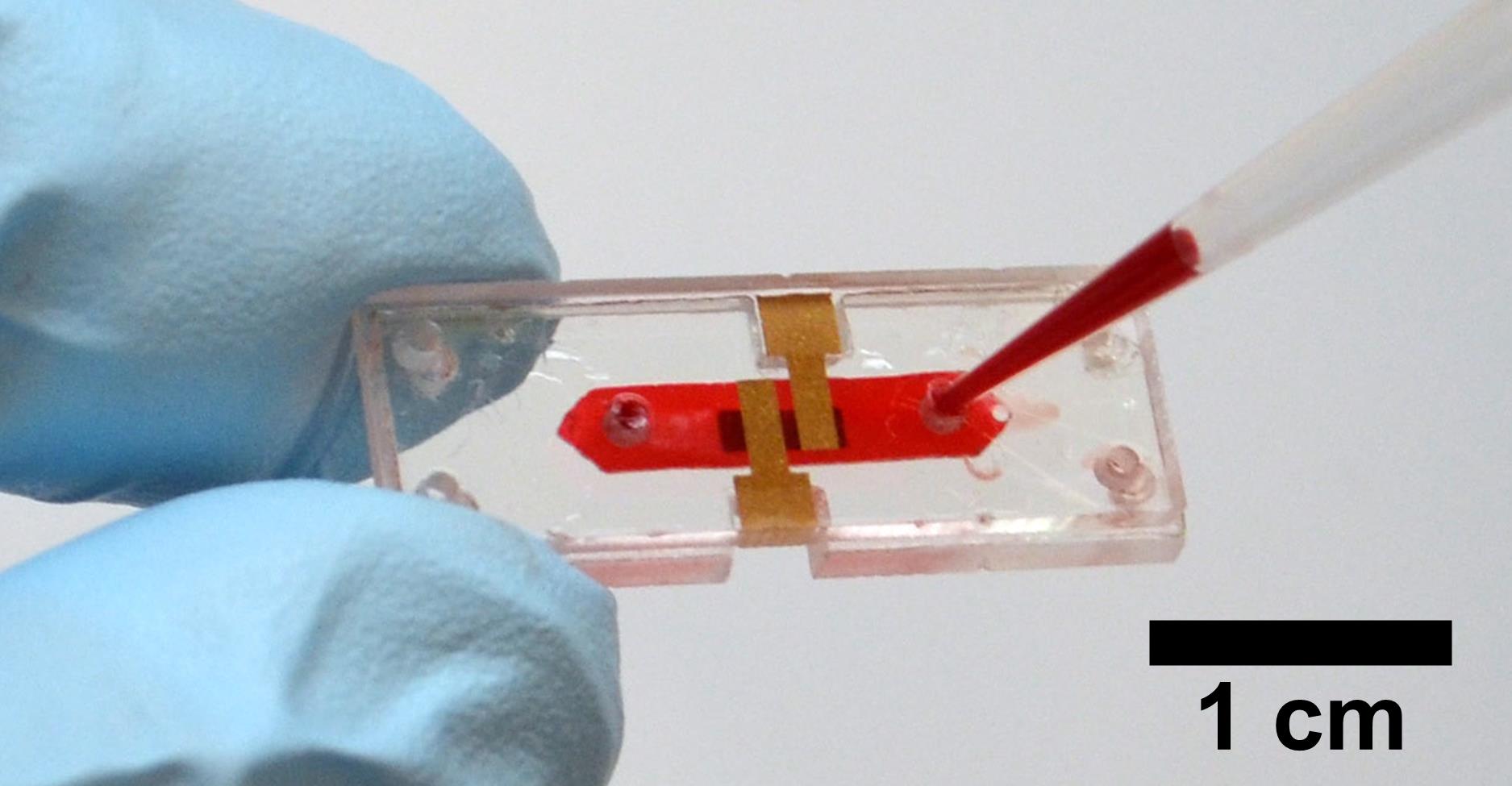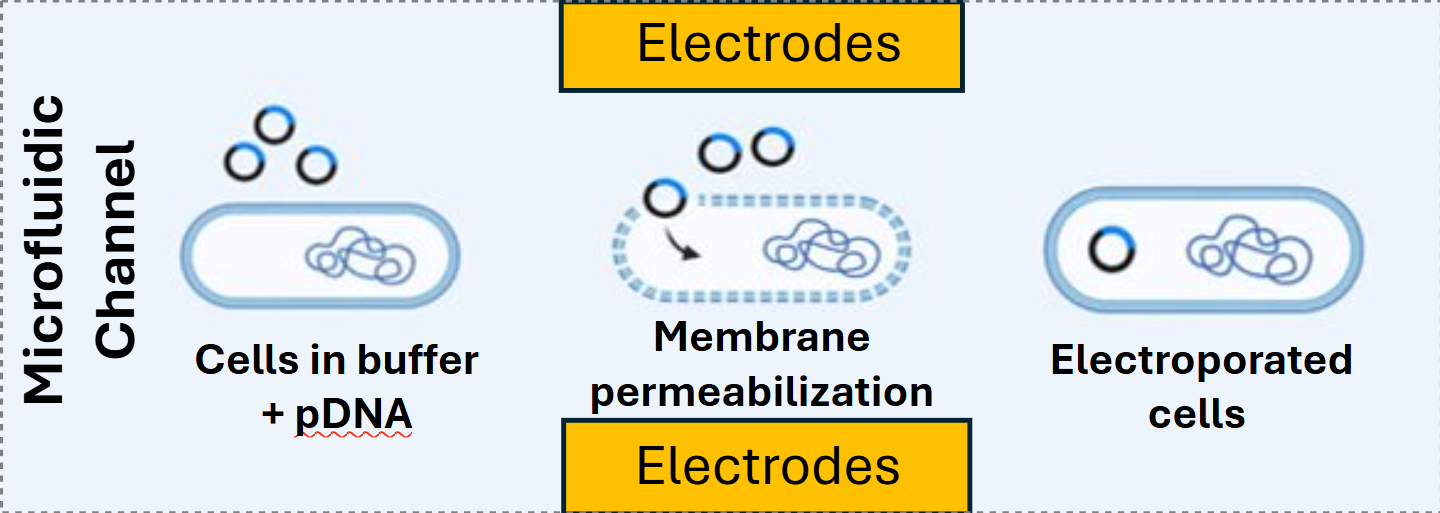Research
Microfluidic impedance-based diagnostic sensors for blood disorders

Our research aims to create next-generation diagnostic devices that harness microfluidic
channels and impedance-based sensing for analyzing blood composition and identifying
diseases such as sepsis, anemia, coagulation disorders, and zoonotic infections. These
devices are designed for point-of-care settings, with the goal of shifting diagnostics
from centralized labs to on-site and accessible platforms in veterinary and clinical
environments. By leveraging impedance spectroscopy, our sensors provide high-sensitivity
detection with minimal blood volume, making them ideal for both human and animal health
applications.
Electroporation based therapeutics

Our research on microfluidic devices for electroporation aims to revolutionize therapeutic
delivery by creating precise, efficient, and scalable platforms for in vivo gene and
protein therapy. Electroporation enables targeted delivery of therapeutic agents by
using controlled electric pulses to permeabilize cell membranes, allowing for the
direct entry of DNA, RNA, or other molecules. In the EDIT Lab, we are engineering
advanced microfluidic systems that optimize electroporation at the cellular level,
ensuring minimal invasiveness and maximizing therapeutic efficacy. This work has potential
applications in gene therapy, immunotherapy, and regenerative medicine, with the goal
of providing accessible, customizable treatments for various diseases. By refining
microfluidic electroporation, we aim to expand the possibilities of cellular therapy,
enabling new breakthroughs in precision medicine.